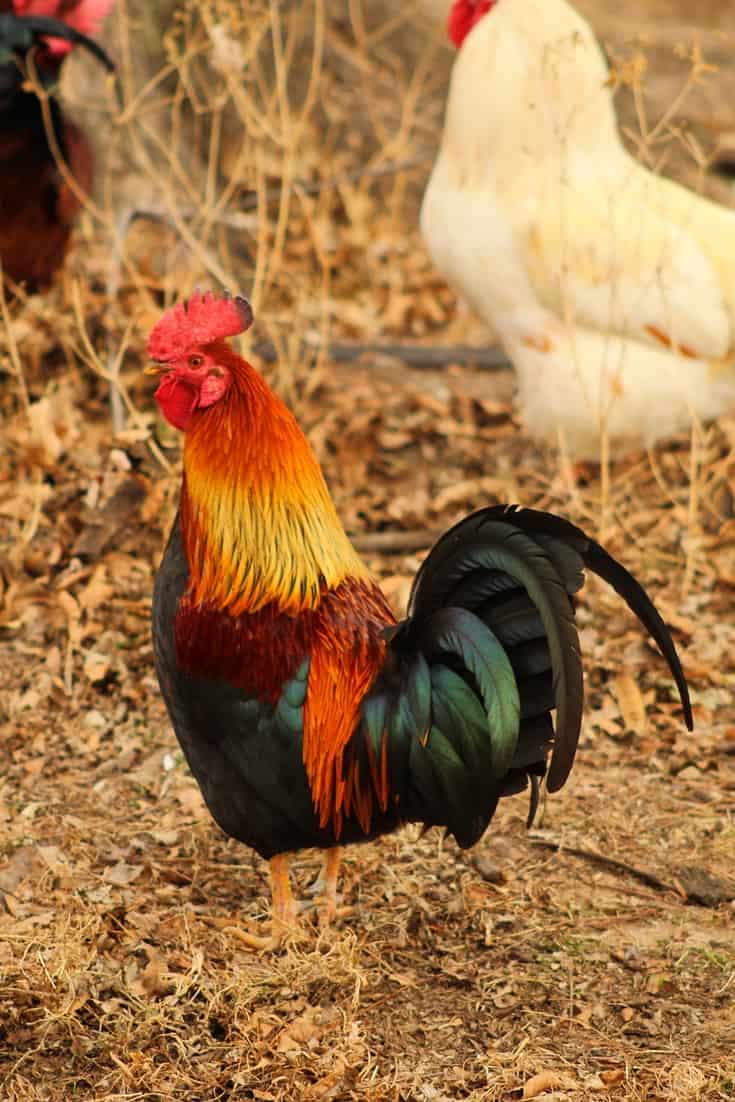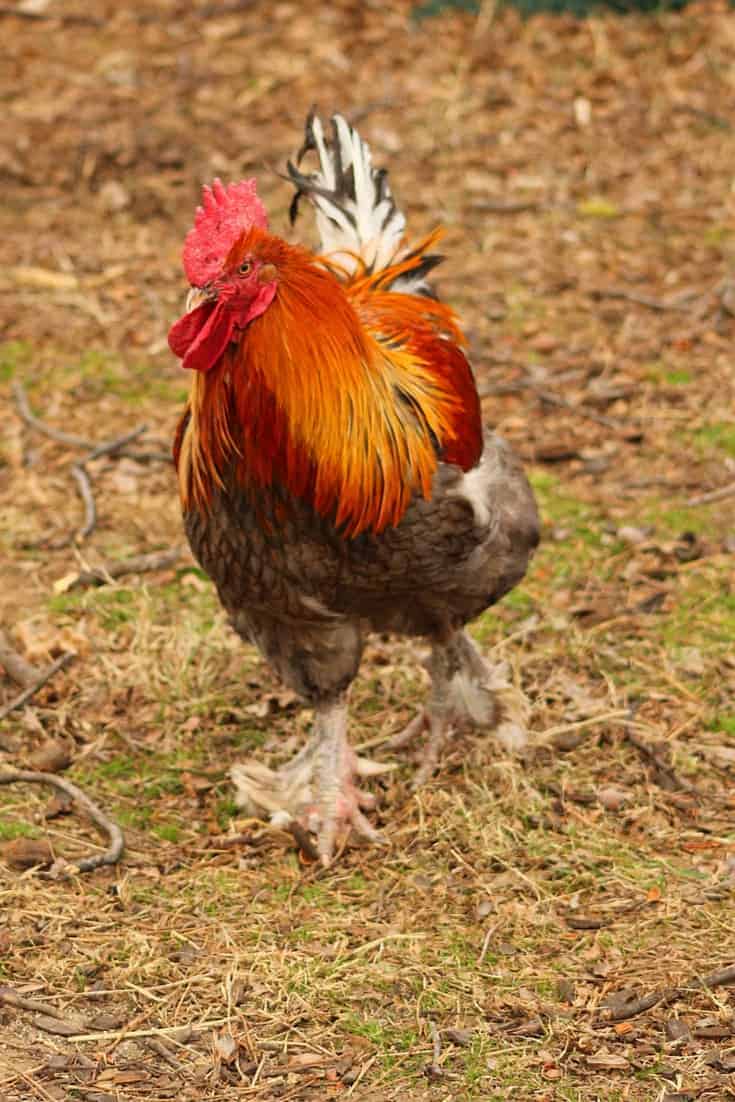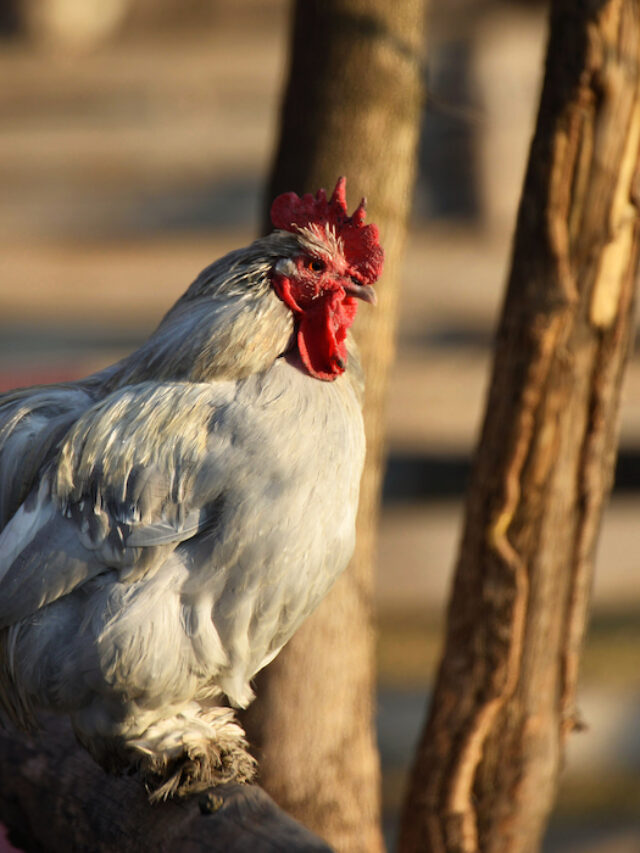Can Chickens Lay Eggs Without A Rooster? Discover The Fascinating Truth
Chickens are one of the most fascinating animals when it comes to reproduction, and one question that often arises is whether they can lay eggs without a rooster. The answer to this question might surprise you, and understanding the process can help you make informed decisions about raising chickens. Whether you're a backyard poultry enthusiast or simply curious about chickens, this article will provide all the information you need to know.
Egg-laying is a natural process for hens, and their ability to produce eggs is not dependent on the presence of a rooster. However, there are nuances to this process that we will explore in detail. Understanding these nuances can help you better manage your flock and ensure the health and productivity of your chickens.
In this comprehensive guide, we will delve into the science behind egg-laying, discuss the role of roosters, and answer common questions related to chicken reproduction. By the end of this article, you will have a clear understanding of whether chickens can lay eggs without a rooster and how this impacts egg production.
- Madison Square Garden Seating Chart Comprehensive Guide To Its Capacity And Layout
- Tennessee Brando Real Name The Untold Story Behind The Rising Star
Table of Contents
- The Biology of Egg-Laying in Chickens
- The Role of the Rooster in Egg Production
- Understanding Egg Fertilization
- Types of Eggs Laid by Hens
- Factors Affecting Egg Production
- Maintaining Hen Health for Optimal Egg Production
- Common Myths About Egg-Laying Without a Rooster
- Frequently Asked Questions
- Benefits of Keeping Chickens Without a Rooster
- Conclusion and Next Steps
The Biology of Egg-Laying in Chickens
Understanding the biology of egg-laying in chickens is essential to answering the question of whether they can lay eggs without a rooster. Hens are biologically designed to produce eggs as part of their reproductive cycle, regardless of whether a rooster is present.
Egg production begins in the ovary of the hen, where ova (egg yolks) develop and mature. Once an ovum is released, it travels through the oviduct, where layers of albumen, membranes, and the shell are added. This entire process takes approximately 25-26 hours, and a healthy hen can produce one egg per day under optimal conditions.
How Often Do Chickens Lay Eggs?
The frequency of egg-laying depends on several factors, including the breed, age, and health of the hen. Some high-producing breeds, such as White Leghorns, can lay up to 300 eggs per year, while others may lay fewer eggs annually.
- How Tall Is Shaqs Dad Discovering The Legacy Of A Basketball Giant
- Milo Ventimiglia Movies And Tv Shows A Comprehensive Look Into His Career
- Hy-Line White: 300+ eggs per year
- White Leghorn: 280-300 eggs per year
- Australorp: 250-300 eggs per year
- Rhode Island Red: 200-300 eggs per year
The Role of the Rooster in Egg Production
While hens can lay eggs without a rooster, the presence of a rooster plays a crucial role in fertilizing the eggs. Roosters are responsible for mating with hens and ensuring that eggs are fertilized, which is necessary if you want to hatch chicks.
However, the absence of a rooster does not prevent hens from laying eggs. In fact, many backyard chicken keepers prefer to keep hens only, as roosters can be noisy and aggressive. This arrangement works perfectly fine if your goal is to collect unfertilized eggs for consumption.
Do You Need a Rooster for Egg-Laying?
No, you do not need a rooster for hens to lay eggs. The reproductive system of hens is designed to produce eggs regardless of fertilization. However, if your goal is to hatch chicks, a rooster is necessary to fertilize the eggs.
Understanding Egg Fertilization
Fertilization occurs when a rooster mates with a hen, and sperm is deposited into the hen's reproductive tract. The sperm then travels to the oviduct, where it can fertilize an ovum as it is released. Fertilized eggs can develop into chicks if incubated properly.
Unfertilized eggs, on the other hand, are the result of hens laying eggs without the involvement of a rooster. These eggs are safe to eat and are the type most commonly consumed by humans.
How Long Do Roosters Stay Fertile?
Roosters can remain fertile for several years, but their fertility decreases with age. A young and healthy rooster can fertilize eggs for up to 10-12 years, depending on its breed and overall health. It is important to monitor the health of your rooster to ensure successful fertilization.
Types of Eggs Laid by Hens
Hens can lay two types of eggs: fertilized and unfertilized. Both types are nutritionally similar, but their intended purpose differs. Below is a breakdown of the two types of eggs:
Fertilized Eggs
Fertilized eggs are laid by hens that have mated with a rooster. These eggs have the potential to develop into chicks if incubated under the right conditions. Fertilized eggs are often used by farmers who want to expand their flock or sell chicks.
Unfertilized Eggs
Unfertilized eggs are laid by hens without the involvement of a rooster. These eggs are safe for human consumption and are the type most commonly found in grocery stores. Unfertilized eggs are nutritionally rich and provide essential vitamins and minerals.
Factors Affecting Egg Production
Several factors can influence the egg-laying ability of hens, including age, diet, lighting, and stress levels. Understanding these factors can help you optimize egg production in your flock.
Age
Hens typically begin laying eggs between 18-24 weeks of age. As they age, their egg production gradually decreases. By the time a hen reaches 3-4 years old, her egg production may decline significantly.
Diet
A balanced diet is crucial for maintaining optimal egg production. Hens require a diet rich in protein, calcium, and other essential nutrients. Providing them with high-quality feed and fresh water can help ensure consistent egg-laying.
Lighting
Light exposure plays a vital role in egg production. Hens need approximately 14-16 hours of light per day to maintain consistent egg-laying. During the winter months, supplemental lighting may be necessary to ensure adequate exposure.
Maintaining Hen Health for Optimal Egg Production
Healthy hens are more likely to produce high-quality eggs. To ensure the health of your flock, it is important to provide proper care, including regular veterinary check-ups, vaccinations, and parasite control.
Regular exercise, clean living conditions, and stress reduction are also essential for maintaining hen health. By creating a comfortable and safe environment for your chickens, you can maximize their egg-laying potential.
Signs of Unhealthy Hens
Watch for signs of illness or stress in your hens, such as reduced appetite, lethargy, or abnormal egg production. If you notice any of these symptoms, consult a veterinarian to address potential health issues.
Common Myths About Egg-Laying Without a Rooster
There are several misconceptions about egg-laying in chickens, particularly regarding the role of roosters. Below are some common myths debunked:
Myth 1: Hens Cannot Lay Eggs Without a Rooster
Fact: Hens can and do lay eggs without the presence of a rooster. The absence of a rooster only affects the fertilization of eggs, not their production.
Myth 2: Unfertilized Eggs Are Less Nutritious
Fact: Unfertilized eggs are just as nutritious as fertilized eggs. Both types contain essential vitamins and minerals that are beneficial for human consumption.
Frequently Asked Questions
Can Chickens Lay Eggs Without a Rooster?
Yes, chickens can lay eggs without a rooster. Hens are biologically capable of producing eggs regardless of fertilization.
How Many Eggs Can a Hen Lay in a Day?
A healthy hen can lay one egg per day under optimal conditions. However, the frequency of egg-laying varies depending on the breed, age, and health of the hen.
Do Fertilized Eggs Taste Different?
No, fertilized eggs do not taste different from unfertilized eggs. Both types are safe to eat and nutritionally similar.
Benefits of Keeping Chickens Without a Rooster
Keeping hens without a rooster offers several advantages, particularly for backyard chicken enthusiasts. Below are some benefits:
Reduced Noise
Roosters are known for their loud crowing, which can be a nuisance to neighbors. By keeping only hens, you can enjoy a quieter environment.
Improved Safety
Roosters can be aggressive and territorial, especially during mating season. Keeping hens only eliminates the risk of aggression and potential injuries.
Conclusion and Next Steps
In conclusion, chickens can indeed lay eggs without a rooster. The presence of a rooster is only necessary if you want to produce fertilized eggs for hatching chicks. Understanding the biology of egg-laying and the role of roosters can help you make informed decisions about managing your flock.
We encourage you to share this article with fellow chicken enthusiasts and leave a comment below if you have any questions or additional insights. For more information on raising chickens, explore our other articles on poultry care and management.
- Realtime Seattle 911 A Comprehensive Guide To Emergency Services
- Discover The Best Movie Experience At Regal Movie Theater Christiansburg

Can Chickens Lay Eggs Without A Rooster red rooster Pampered Chicken

Can Chickens Lay Eggs Without A Rooster lavender Pampered Chicken

How Chickens Lay Eggs Without a Rooster Farmhouse Guide